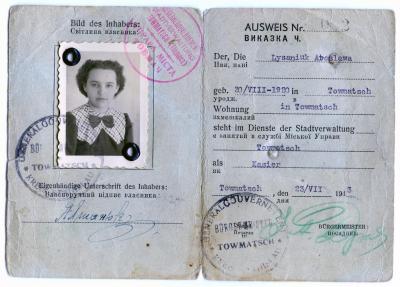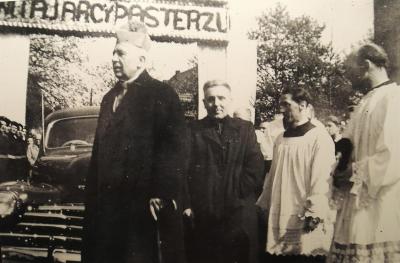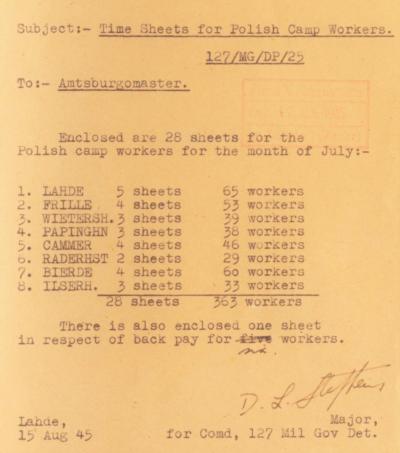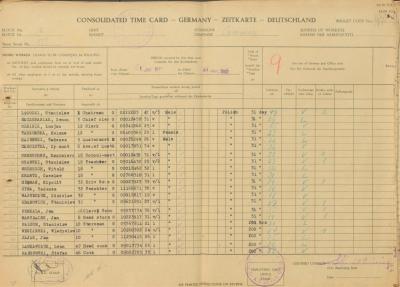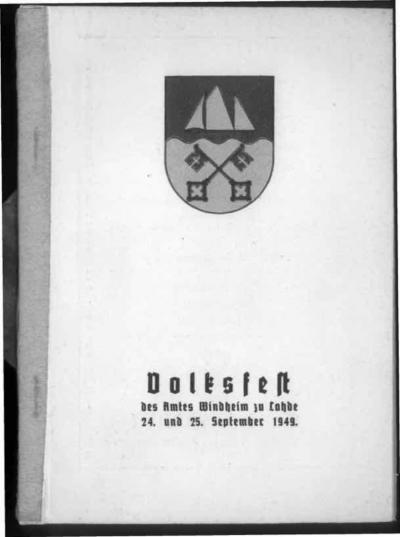The “Polish camp” in Lahde/Weser
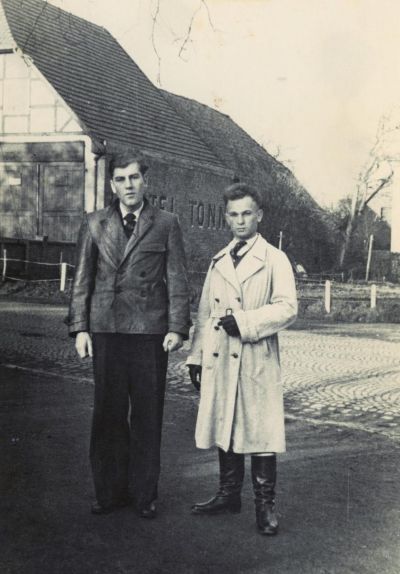
By summer 1945 it could be foreseen that that the supply situation for displaced persons and the German population would dramatically deteriorate from October onwards. So, in June 1945, the British decided to release German prisoners of war in order to ensure that enough people were available to work in the coming harvest; and also to restore coalmining activities in the Ruhrgebiet. For this reason DP camps were also closed in the Ruhrgebiet and displaced persons distributed amongst other camps in Westphalia.
In August 1945 a typhus epidemic broke out in the district of Lahde, that was successfully wiped out a few weeks later. This led, amongst others, to stricter standards of hygiene in the Lahde DPAC. There was also an acute shortage of fuel in the camps administered by the Lahde DPAC during the harsh winter of 1945/1946. As a result, buildings and courtyards were dismantled in order to get wood from furniture, staircases and rafters for heating and cooking purposes. Ad hoc fireplaces and electric cookers led to some of the courtyards in the camps being burnt down to the foundations.
In August 1946 UNRRA was already responsible for 127 DP camps in the British occupied zone, and the military government was intending to hand over the last DP camps to UNRRA by the end of the year. But things developed in the opposite direction. After UNRRA Area Teams had been set up to supervise a number of foreigners camps, formal responsibility for the DPACs was first handed over to the military government. UNRRAA was then dissolved at the end of June 1947 and it was decided to hand over its responsibilities to the International Refugee Organization (IRO) in July 1947. As a result the USA and the countries in the Commonwealth of Nations, both of which were coveted destinations for displaced persons, loosened their immigration restrictions for DPs who were unwilling or unable to be repatriated. Some of these went their own way within the Federal Republic of Germany. The sinking number of people living in DPACs led to an easing of the situation.
The closure of the Päpinghausen camp in spring 1948 marked the start of the dismantling of the Lahde DPAC. This process came to an end in September 1949 when the camp in Lahde was closed. The local population returned to their towns and villages and reconstruction in Germany rapidly began.
Hermann Kleinebenne, March 2016
Sources:
The National Archives, London, Foreign Office documents, the War Office
The local authority archive in Petershagen, documents on the foreigners’ camp in Lahde held in the Lahde district office.
The Kevin Irla archive
The Russell Panczenko archive
The Anna Young archive
